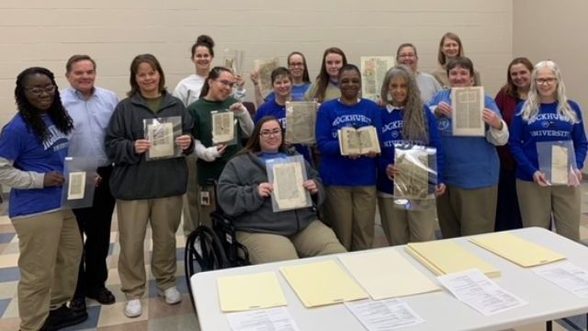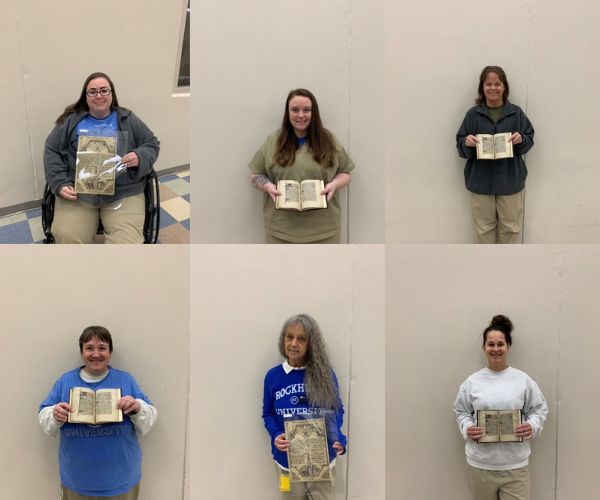Books of Hours in a Women’s Prison
There is something humbling about medieval manuscripts. Their material presence testifies to the labor-intensive book culture of the Middle Ages, making us mindful of our own embarrassment of riches in this digital information age. As a teaching tool, manuscripts humanize the past with every ink blotch, stain, and marginal note. I bring students to the visit the Karen Gould Manuscript Collection at Kansas City’s Nelson Atkins Museum to learn about book culture or intellectual history, but also desiring to offer them a connection with readers of the past and a reverence for the power of the human intellect. Always I hope they will experience the inexpressible sense of awe that comes with confrontation of antiquity.
Last fall, thanks to the generous support of Amelia Nelson (Director of Library and Archives at the Nelson Atkins Museum), my classes on Rockhurst University’s Chillicothe campus were able to work directly with the Gould collection. Perhaps better than anyone, the women of the Chillicothe Correctional Center know how access to knowledge shapes people’s lives, and they were fascinated by the history of women’s agency and literacy. Maybe this is why they were so drawn to the leaves from medieval Books of Hours, devotional books which are perhaps the only manuscript genre that was created for a female audience.
The class experience of these manuscript leaves was emotional and joyful. Many students transformed their reflective essays into creative projects that adapted the genre to their own situation. Their ‘Hours of the Day’ replaced the liturgical hours with the inescapable rhythm that shapes their lives: Count. Breakfast. Med line. Count. Students chose meaningful texts for reflection to complement the divisions of their day, modernizing and interpreting the genre. I wonder what the creators of these artworks would think if they knew their exquisite pages would reach across gulfs of time to inspire reflection in women’s lives. Those manuscript leaves certainly exerted their magic, igniting interest in antiquity. In the prison context, they also did a little more. They inspired the students to reflective interpretations that honored their own experiences, and they opened doors to the “care of the whole person,” the greatest good of Jesuit pedagogy.

